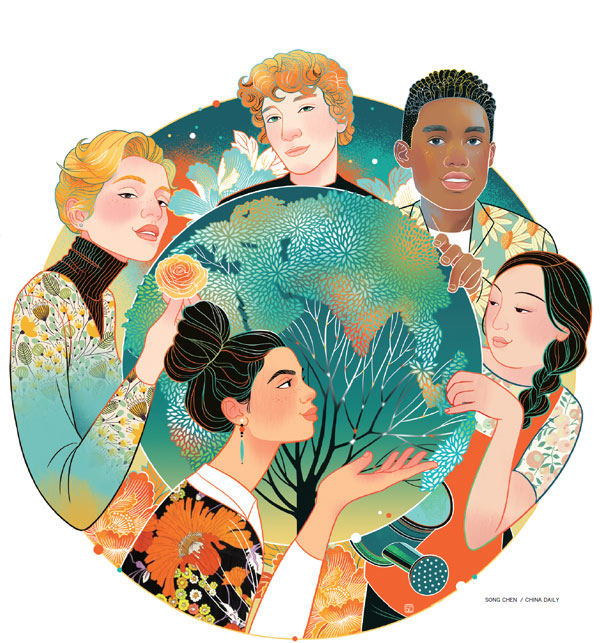Working toward shared future of mutual respect


From the Fertile Crescent to the Indus Valley to the banks of the Yellow River, some of the world's earliest civilizations arose in Asia. Over the course of thousands of years, prosperous and diverse Asian civilizations nurtured innovations and technologies, boosted regional and global trade, and contributed to the development of global religions. Looking back over millennia of shared Asian experience and interaction via ancient networks such as the Silk Road, there is much to be learned about how individual cultures become enriched through mutual exchange and how shared values can in turn enrich the entire world.
Recognizing the fact that cross-cultural exchange and shared values are a conduit for shared prosperity has become a pressing priority in a contemporary political landscape where a few countries are increasingly turning inward and speak of building walls, not bridges.
All too often are we confronted with news of conflicts and saddened to see ever more lives shattered by violence and war. Many of these conflicts stem from fomenting intolerance and a hatred of diversity blind to the promise of a world built upon universal values of peace and respect. In these troubled times, dialogue is more relevant than ever to the United Nations 2030 Agenda, which recognizes that to achieve sustainable development, we should strive to build societies that are truly respectful and inclusive, where diversity is seen as an asset, not a threat.
To achieve this goal, we need commitment, solidarity and investment.
Leaders from all sections of society should stay committed to upholding universal values and taking solid actions to create conditions for people from different cultures to live free of discrimination and persecution. We need to urge societies and groups, especially young people to engage with each other and unite and promote mutual understanding. Through investment in education we will ensure young people can unlock their potential and keep their minds open to the reality that all people around the world share a common humanity that must be respected and celebrated together. Building social safety nets can help ensure that no one is left behind by new technological developments and innovations, and that everyone can benefit from globalization and diversity.
China has made remarkable progress toward building such safety nets that take into account material as well as cultural wealth as necessary components of a fulfilling life. In the decades since the launch of reform and opening-up, China year after year continues to make strides toward eliminating poverty, achieving education for all, and bolstering innovation. Economic growth, technological development and progress in education happen hand-in-hand with a strong respect for China's historical and cultural wealth.
As last month's Belt and Road Forum for International Cooperation showed, China is open to sharing its development experience with the world, and the Conference on Dialogue of Asian Civilizations to be held this week in Beijing provides another opportunity for countries to mutually benefit from each other's development experiences and cultural knowledge. The conference will bring the continent's leaders together and confirm a commitment to putting people first, understanding that our shared values and hopes are not to be understood as explicitly or exclusively "Asian" but as universal values.
All people share hopes for a better future in which their rights are respected and people of all identities, all faiths, and all cultures can live together in harmony. In the words of UN Secretary-General Antonio Guterres, "the inherent dignity and equal rights of all members of the human family provide the foundation for freedom, justice and peace". This inherent dignity must not be an aspirational goal but a universal right, and all development activities must build respect for such fundamental human rights.
Dialogue is an important step, yet dialogue without action is to draw the proverbial bow without shooting the arrow. We must work together as one and act now to combat the manifold threats facing us if we want civilizations to flourish for generations to come. Multilateralism and sustainability must be our creed if we are to succeed in this endeavor, and we must look toward Asia-home to more than half of the world's population-to inspire the transformational shift toward sustainability. A shift based upon an unwavering respect for each other, and respect for the natural world upon which all civilizations are built.
The author is United Nations Resident Coordinator in China. The views don't necessarily represent those of China Daily.
































